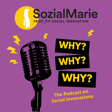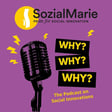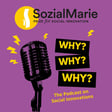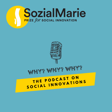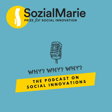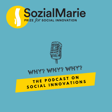
Episode 11: Nika Kovač on Women’s Rights and Change in Europe
In this episode of the SozialMarie podcast, co-hosted by Živa Lopatič, SozialMarie’s Country Coordinator for Slovenia, and Jose, we hear from Nika Kovač, director of the 8th of March Institute. Nika shares the inspiring story behind My Voice, My Choice, a trans-European campaign that collected over 1.2 million signatures to protect reproductive rights across the EU. Sparked by the rollback of abortion rights in the U.S., the campaign used the European Citizens’ Initiative to propose legal protections at the EU level—mobilizing citizens across borders and creating what may be the largest reproductive rights movement in European history.
Nika talks about the challenges of organizing such a campaign, the importance of community and grassroots action, and the innovative tools they used to overcome obstacles. She also reflects on earlier victories in Slovenia, including changing rape laws, leading referendums to defend public resources, and pushing for systemic social change.
Despite facing personal threats and public attacks, Nika remains committed to her mission, grounded in hope, solidarity, and the belief that democracy belongs to everyone. This episode is a powerful exploration of what it means to lead with courage, purpose, and community.
Some links:
